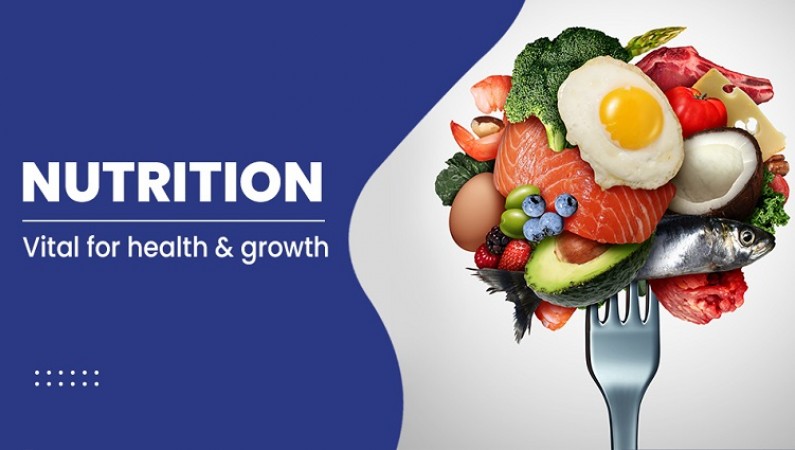
World Mental Health Day, observed on October 10th each year, serves as a global platform to raise awareness about mental health issues and promote mental well-being. In recent years, the importance of nutrition in mental health has gained increasing recognition. The food we consume plays a significant role in not only nourishing our bodies but also influencing our mental and emotional states. This article explores the connection between nutrition and mental health and provides valuable insights into how making mindful dietary choices can have a positive impact on our mental well-being.
The Gut-Brain Connection
One of the most intriguing discoveries in the field of mental health is the strong connection between the gut and the brain, often referred to as the "gut-brain axis." The gut is home to trillions of microorganisms, collectively known as the gut microbiome, which play a crucial role in maintaining both physical and mental health. Research suggests that the composition of these microorganisms can influence our mood, cognition, and behavior.
A diet rich in fiber, whole grains, fruits, and vegetables promotes a diverse and healthy gut microbiome. These foods provide essential nutrients and promote the growth of beneficial bacteria. On the other hand, a diet high in processed foods, saturated fats, and sugars can negatively impact the gut microbiome, potentially contributing to mental health issues such as depression and anxiety.
Essential Nutrients for Mental Health
Certain nutrients are particularly important for maintaining good mental health:
Omega-3 Fatty Acids: Omega-3 fatty acids, found in fatty fish like salmon and walnuts, are known to have anti-inflammatory properties that can help reduce the risk of depression and improve mood.
B Vitamins: B vitamins, including B6, B9 (folate), and B12, play a crucial role in brain function and mood regulation. Foods like leafy greens, legumes, and lean meats are good sources of these vitamins.
Antioxidants: Antioxidants found in fruits and vegetables help protect the brain from oxidative stress and inflammation. Berries, spinach, and kale are excellent sources of antioxidants.
Protein: Amino acids from protein-rich foods are essential for the production of neurotransmitters like serotonin and dopamine, which influence mood and emotions. Incorporate lean meats, tofu, and legumes into your diet to ensure an adequate intake of protein.
Magnesium: Magnesium is involved in various biochemical processes in the brain and can have a calming effect. Nuts, seeds, and whole grains are rich sources of magnesium.
Zinc: Zinc plays a role in neurotransmitter regulation and can affect mood and behavior. Include foods like lean meats, beans, and nuts to meet your zinc needs.
The Impact of Sugar and Processed Foods
Consuming excessive amounts of sugar and processed foods can have detrimental effects on mental health. A high intake of sugar has been linked to mood swings, increased anxiety, and even depression. Processed foods, often high in trans fats and artificial additives, can lead to inflammation in the body, which can negatively affect the brain and contribute to mental health issues.
Additionally, diets high in sugar and processed foods can lead to blood sugar spikes and crashes, which can result in irritability, fatigue, and mood fluctuations. Opting for a diet that prioritizes whole, unprocessed foods can help stabilize blood sugar levels and promote emotional well-being.
Mindful Eating and Mental Health
Practicing mindful eating can be a powerful tool for improving mental health. Mindful eating involves paying close attention to the sensory experience of eating, such as the taste, texture, and smell of food. By being present in the moment during meals, individuals can develop a healthier relationship with food and gain a better understanding of their hunger and fullness cues.
Mindful eating can also help reduce emotional eating, which often stems from stress, anxiety, or depression. Instead of turning to comfort foods as a coping mechanism, individuals can learn to address their emotions in healthier ways, such as through meditation, exercise, or seeking support from a mental health professional.
Incorporating Healthy Eating Habits
Here are some practical tips for incorporating healthy eating habits into your daily life to support your mental health:
Prioritize whole foods: Base your diet on whole grains, lean proteins, fruits, and vegetables. Limit your consumption of processed and sugary foods.
Stay hydrated: Proper hydration is essential for cognitive function and mood regulation. Drink plenty of water throughout the day.
Consume omega-3 fatty acids: Incorporate fatty fish like salmon, flaxseeds, and walnuts into your diet to increase your omega-3 intake.
Mindful eating: Pay attention to your meals and savor each bite. Avoid distractions like screens or work while eating.
Seek professional guidance: If you have specific dietary concerns or mental health issues, consider consulting a registered dietitian or mental health professional for personalized advice.
On World Mental Health Day, it is crucial to recognize the integral role that nutrition plays in our mental well-being. The gut-brain connection, essential nutrients, and the impact of sugar and processed foods all highlight the significance of our dietary choices on our mental health. By adopting a diet rich in whole foods, practicing mindful eating, and seeking professional guidance when needed, we can take proactive steps towards nurturing both our bodies and our minds, ultimately leading to a happier and healthier life.